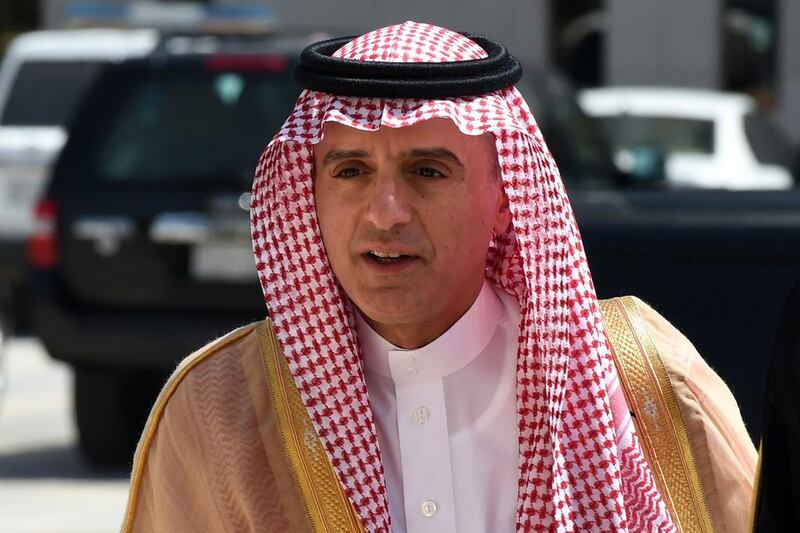LONDON // Saudi Arabia is prepared to accept a ceasefire in Yemen if the Iran-backed Houthi rebels agree, foreign minister Adel Al Jubeir said on Monday.
However, the Iran-backed Houthi rebels would have to “come to their senses” and agree that Yemen was free, Mr Al Jubeir said.
“We would like to see a ceasefire yesterday,” he told reporters in London.
The Saudi foreign minister discussed the Yemen conflict with the US secretary of state John Kerry, British foreign secretary Boris Johnson and officials from the UAE, a key member of the Saudi-coalition backing the Yemeni government, in the British capital on Sunday.
In joint press conference with the UN envoy to Yemen Ismail Ould Cheikh Ahmed after the talks, Mr Kerry and Mr Johnson called for an immediate and unconditional ceasefire.
“Everybody wants a ceasefire in Yemen, nobody more so than the kingdom of Saudi Arabia and the coalition members,” Mr Al Jubeir said.
He accused the Houthis of reneging on previous deals.
“So yes, we come at this with a lot of cynicism. But we are prepared, the Yemeni government is prepared, to agree to a cessation of hostilities if the Houthis agree to it. The coalition countries will respect the desire of the Yemeni government,” Mr Al Jubeir said.
Mr Al Jubeir said he hoped the United Nations would persuade parties in the conflict to come back to the negotiating table. Months of UN-mediated talks in Kuwait ended in August without any breakthrough.
Saudi Arabia and Mr Hadi’s government accuse Iran of supplying weapons to the Houthis, who are also backed by troops loyal to former Yemeni president Ali Abdullah Saleh, to help spread Tehran’s influence at the expense of Riyadh, its main regional rival. Iran denies the charge.
The Houthis still control Sanaa and large areas of northern and western Yemen, but Mr Al Jubeir said it was a matter of time before they were defeated.
“The momentum is going against them in Yemen. They’re losing more territory, more people are mobilised against them. They are not paying their bills, businesses are not extending credit to them,” he said.
Mr Jubeir said Saudi Arabia was being very careful to abide by humanitarian law in the Yemen conflict, and that those responsible for coalition air strikes on a funeral in Sanaa on October 8 would be punished and the victims compensated.
About 140 people were killed and nearly 600 injured in the strikes. A coalition investigation panel reported on Friday that the attack was the result of faulty intelligence provided by the Yemeni army and insistence by the air operations centre in Yemen that the strikes be carried out immediately, leaving the coalition command no time to review the intended target.
* Reuters





